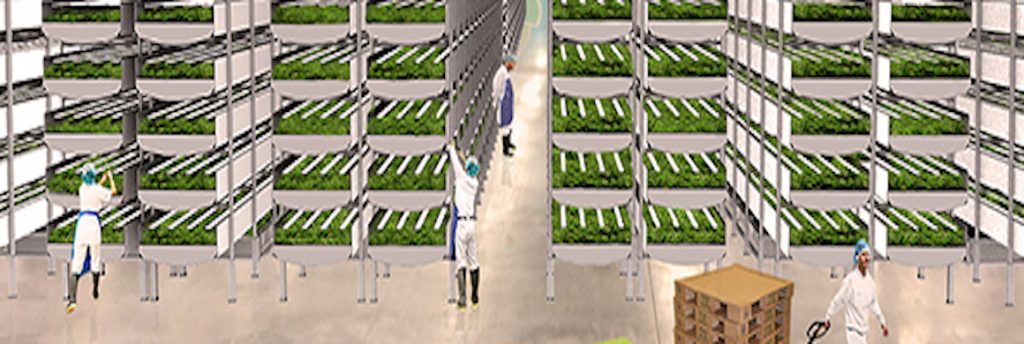MIT Sloan published an article this week about AeroFarms, an innovative Newark, NJ vertical farm situated in a 70,000-square-foot facility more akin to a “sci-fi movie set” than the green pastures one traditionally associates with farms.
Spread across 1.5 acres, vertical farms like AeroFarms can produce “as much food as 120 acres of traditional farmland.” Founded in 2004, AeroFarms’ revolutionary food production model has greatly impacted “critical food supply issues in emerging economies and high-density urban areas.” AeroFarms—and vertical farming in general—is a rapidly growing field, “hiring in operations, construction, and research and development, among other areas.”
The Newark facility grows leafy greens, whose “exposed roots are fed with a nutrient-rich mist” and are then bathed in LED light, which all non-greenhouse indoor vertical farms use. The result is a farm that uses “95% less water, no soil or pesticides, with harvests year-round” and whose “plants reach maturity in half the time of traditional methods.”
MIT Sloan/Harvard Kennedy School of Government dual degree student Juliana Philippa Kerrest has been working as a marketing intern this summer with AeroFarms. Kerrest’s research interests are currently focused on “emerging markets and the developing world.”
Kerrest is “involved in determining how far away product can be delivered, balancing competitive factors like maintaining quality during shipping and ensuring a minimal environmental footprint, [and] introducing buyers to the product.”
Kerrest points out that the emerging industry of vertical farming highlights a number of critical issues related to globalization, urbanization, technology, and population growth. “There’s the environmental piece: climate change and water shortages are both realities, and the way we’re currently living in and treating the world is not sustainable.”
She concludes, “The question people keep asking is ‘How are we going to feed the nine billion people we’ll have in 2050?’ I’m interested in the new types of jobs and opportunities in developing countries presented by technology and business models like this.”
